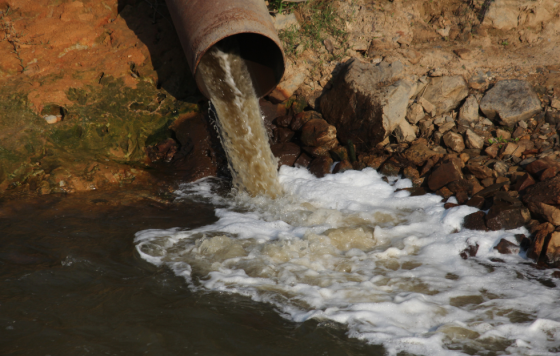
There was widespread concern in the environmental community that the Minnesota Legislature would spend the 2017 legislative session putting our water, air, and public health at risk. The Republican leadership, newly in control, confirmed our worst fears. Extreme partisanship and secretive, behind-closed-doors decision making got in the way of commonsense progress to protect Minnesotan's health and environment. It also meant the legislature couldn't agree on a budget and Governor Dayton had to call a special session, with the resulting budget containing many unpopular policies that were included as part of omnibus bills that were needed to pass to avoid a government shutdown.
This year is the ten year anniversary of the Next Generation Act, a bipartisan effort to increase energy efficiency, expand community based energy development, and establish a statewide goal to reduce statewide greenhouse gas emissions. It's a shame that this Legislature doesn't share the commitment to ensure that Minnesota continues to be a national leader on clean energy.
The Omnibus Jobs and Energy Bill:
- Removes consumer protections for some utility ratepayers who choose to invest in rooftop solar or small wind.
- Lets the legislature interfere with the Renewable Development Fund, a fund that promotes the startup and expansion of renewable energy projects.
- Exempts small utilities from Minnesota’s Conservation Improvement Program, a program focused on conserving energy and reducing carbon emissions that has saved ratepayers billions in energy costs.
- Preempts local government from enacting ordinances that ban the use of plastic bags and voids existing ordinances that regulate plastic bags.
The Omnibus Environment and Natural Resources Bill:
- Allows polluters to write their own draft Environmental Impact Statement (EIS), which is shielded from public disclosure.
- Limits the right for Minnesotans to contest a mining permit.
- Exempts cities that construct public water treatment facilities from having to make needed technological updates to comply with clean water standards for 16 years.
While we were on the defense on many key issues, we also worked pro-actively on priority legislation and were able to win on these issues:
Lead testing requirement in schools.
This huge victory was included in the Omnibus Education Finance Bill after months of grassroots action by Clean Water members and others. Until now, there has been no requirement for lead testing in schools. The new law requires each school district or charter school to adopt a comprehensive plan for lead testing by July 1, 2018. It also requires that the water be tested at least once every five years and that parents are notified about the results of the testing.
Funding for Wastewater and Drinking Water Infrastructure Improvements
Clean Water Action advocated for Governor Dayton’s recommendation of $172 million for wastewater, drinking water, and stormwater infrastructure needs. The legislature acted and passed a bonding bill that includes $116 million in funding. Of that, $40 million is dedicated to wastewater treatment infrastructure, $15 million for drinking water infrastructure, and $33.7 million for the Point Source Implementation Grant Program to help fund local wastewater treatment upgrades.
Funding for the St. Louis River Estuary Cleanup
Due to decades of pollution before landmark laws went into effect, riverbed sediments are contaminated with toxic chemicals that threaten public health and fish and wildlife. The Capital Bonding bill included the full recommendation of $25.4 million in funding needed to obtain $47.2 million in federal funds as part of the multi-state and federal effort to clean up the Great Lakes.
Funding for Forever Green
A University of Minnesota research program focused on developing new cover and perennial crops to improve soil health and water quality. Forever Green received $1.5 million in funding over the next 2 years from the Legacy Amendment’s Clean Water Fund.
The legislature failed to act on these Clean Water priorities:
Waste Tire Moratorium
This bill would have established a moratorium on the use of waste tire as ground cover on playgrounds and as infill on athletic turf fields until the latest research on health effects could be analyzed by the Minnesota Department of Health. It would have also required signage on existing playgrounds and fields that educates users on ways to reduce their exposure to toxic chemicals. The bill gained bipartisan support and was included in the Senate Omnibus Health and Human Services Bill but heavy opposition lobbying from the tire industry ultimately killed this effort.
The Firefighter and Children's Health Protection Act
This bill would have protected children and firefighters by expanding the number of toxic flame retardants banned in Minnesota from use in upholstered furniture and children’s products.
Cleaning Product Ingredient Disclosure
This bill would have required manufacturers of both consumer and industrial cleaning products to disclose a subset of the ingredients in their products on the label and all of the ingredients on their website, so that consumers can protect their health from toxic chemicals and make informed decisions.
Overall this session, the legislature did take steps to improve water quality and protect drinking water for children across Minnesota. However, there is still a lot to be done to put the health and wellbeing of our communities first. Now that session is over, it’s time to hold legislators accountable for the decisions they made and urge them to make these issues a priority when they return to St. Paul for the 2018 legislative session.


